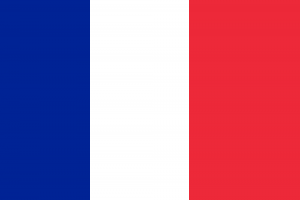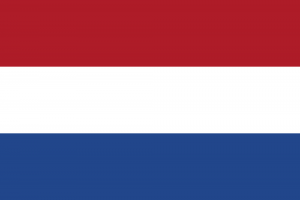Not long ago, the Tribune de Genève, one of Switzerland’s most important newspapers, published a short column on the French expression “Filer à l’anglaise”, while questioning its source. Strangely enough, “to leave in the manner of the English”, the translation of this French phrase, has the same connotation as the English saying, “to take a French leave” – to leave a place or an event without permission. So who coined it first? The French or the British?
To find out, we’ve decided to take a look at some common expressions and idioms that include names of countries or cities, giving each its meaning and supposed origins. And as you’ll see, some of them have very negative connotations, while others have positive or rather neutral meanings.
We begin with the caveat that as the origins suggested differ from one source to another, we chose those for which there appeared to be general agreement.
France
The expression “taking a French leave” goes back to the mid-18th century and is said to derive from the French attitude of leaving an event without bidding farewell to the hosts. The phrase was apparently coined right after the Seven Years’ War (1756-1763).
In effect, most expressions that mention the French go back to rivalries between France and England. The French were often negatively depicted by the British. For instance, it’s common to hear a person say, before a swear word, “Pardon my French”. French people were also associated with what was considered indecent activity, as in “French kissing” or “French print” (pornographic material). Of note is that the French returned the compliment by formulating similar expressions, such as “Filer à l’anglaise” (to flee in the manner of the English) or “le vice anglais” (the English flaw or defect), to negatively describe British performance in many areas, like sports, economics or politics.
***
French poodle – A breed of dog (of which there are several varieties) with a curly coat that is often ornamentally groomed
Origin: Contrary to popular belief, the poodle is not a French dog, although it is the national dog of France, called Caniche (from “chien canard” or duck dog). Apparently from the German word “puddeln” (to splash in water) and later “Pudelhund”, poodles were bred for hunting and retrieval in water. Some suggest the poodle originated in other countries, like Russia or Portugal.
***
French fries – Potatoes deep-fried in thin strips or batons
Origin: The most popular theory suggests that French fries were invented in Belgium. In the late 1600s, Belgian villagers regularly fried fish, but they had to find another source of food in winter when the river froze. So they began eating potatoes the same way they ate the fish: fried.
During World War I, American soldiers stationed in Belgium were first introduced to French fries and, as the official language there was French, the soldiers named the fried potatoes “French fries”. It’s noteworthy that today, Belgians consume more French fries per capita than do other Europeans.
***
French toast – Bread soaked in seasoned beaten eggs, often with added milk, and fried on both sides
Origin: Of the many theories, the most popular traces this dish back to the Roman Empire (4th century), termed Pan Dulcis in the collection of Roman recipes called “Apicius”. It then became popular in Europe, and went by many names before it became “French toast”. In France, it is called “Pain perdu” (lost bread). Another theory has it that it was named after an American innkeeper, Joseph French, who advertised it in the 18th century.
Though its origins are not clear, one thing is sure: French toast is not French!
***
Niçoise salad – A salad “in the style of the French city Nice”, with lettuce, olives, tomatoes, anchovies and vinaigrette dressing, as well as green beans, tuna and hard-boiled eggs (and occasionally other ingredients, such as potatoes)
Origin: There are claims that this salad is in fact an Italian dish, brought to France by Catherine De Medici of Florence when she moved to Paris and married King Henry II of France. However, no real evidence of this exists.
Netherlands
Similarly to most expressions involving the French nationality, the British attempted to put down their Dutch rivals during the 17th century, when commercial competition between the two nations was at its peak. Almost anything viewed as “inferior” or “abnormal” was labelled Dutch, according to Hugh Rawson in his book Wicked Words (1989).
***
Dutch courage – Gaining confidence or courage by drinking alcohol
Origin: One story has it that Dutch gin was drunk by English soldiers in the 17th century during the Thirty Years’ War (1618-1648) as it was thought to warm the body in cold weather and calm the fighters before battle. Another theory is that the English soldiers witnessed the increased courage of the Dutch who drank gin before going to war.
***
Hollandaise – A smooth, yellow sauce made from egg yolks and butter (and lemon juice or vinegar)
Origin: Where and when this sauce first appeared is a mystery. The obvious suggests it originated first in Holland and was named by the French who referred to its maker, the “hollandaise” or Dutch woman. In any case, a sauce that fits its description appears in one of the earliest and most important culinary books of French cuisine, Le Cuisinier François (1651), by François Pierre de la Varenne.
***
To go Dutch – To split the cost of something, especially the bill in a restaurant, between everyone in a group
Origin: Among several theories, one relates to the stereotype that alleges the Dutch are stingy or frugal. Another is connected to the New York mobster and gambler, Dutch Schultz, who in the 1920s used a gambling strategy in horse racing that shares stakes across bets.
***



Your email address will not be published. Required fields are marked *